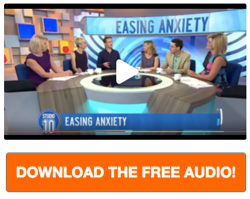Anxiety is one of the silent enemies that plague families all over the world. This disorder can be the main cause for absenteeism on the job and refusal to take on specific jobs. When it comes to treatments for anxiety, we must always look for long term solutions. However, saying this is easier than actually concocting a plan to make it happen. To a lot of anxiety sufferers, a long term solution is composed of several short term solutions.
If we look at all the treatments for anxiety disorders around, we can group them into three. Here are some of these treatment categories.
1. Medication and Therapy
While many would disagree that medication and therapy should be grouped together, it cannot be denied that many psychologists and doctors of psychiatric sciences recommend drugs for patients to use when they’re not attending sessions. It’s not just the doctor’s prerogative to prescribe medication; it may be the patients themselves asking for drug treatments for anxiety troubles. Some patients may want quick fixes because they have stressful events coming up like debates, board meetings, sales presentations and speaking engagements. Medication becomes the quick fix solution for people that don’t want anxiety attacks to occur while they’re doing something important.
The theory is that a patient can be weaned off of an anti-anxiety drug in the course of the therapy or program set by the psychologist. However, the truth is that many patients relapse a hundred percent when the time for quitting the medication comes. Therapy would work wonders if the patient is cooperative and if the psychologist insists on low-drug doses to keep the drug dependence at bay during the therapy’s duration.
2. Holistic Practices
Good holistic practices exist for curing anxiety. Some of these treatments include acupuncture, aromatherapy and herbal drugs. If used well, holistic methods would miraculously cure a person and ward off future relapses. The secret behind these holistic practices has a lot to do with how they make a person relax. Anti-stress treatments work to improve resistance to stress. Some act as relieving agents for people under constant pressure to perform at work or in school. Aromatherapy, in particular, can keep stress at bay because the essential oils of some plants are proven to be effective for relaxing the mind.
3. Self Help DVDs and Books
Many sufferers don’t take self-help practices like Linden seriously for the reason that they would rather get real counselling. Real counselling in this context means sitting down with a psychiatrist and telling him your troubles. He will then prescribe medication as well as other treatment options for you. Most of the time, the treatments of anxiety that many people go for involves an extremely complicated cocktail of drugs and therapy sessions. But in reality, you can treat anxiety on your own and be rid of it with self help options.
For self help methods to really work, you should be confident that you can discipline yourself to sit through a DVD program, and do the exercises without supervision. If you don’t have the confidence in your personal discipline, self help may not be for you. Deep inside, you may be thinking that you would never be able to pull it off if you don’t receive any help.
